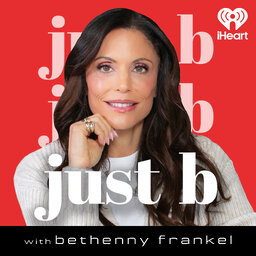Scott Harrison
On leaving the depraved club scene and giving clean drinking water to millions.
Scott Harrison was a club promoter selling boujee water to models for $10 a pop, until he saw a 13 year old girl drinking dirty water on a volunteer trip to Africa. That’s when he decided to create his nonprofit charity:water— and changed his life (and the lives of millions) forever. Bethenny and Scott also dissect how to spot a phony charity. If you’re thinking of making a donation to a charity, you should listen to their advice.
Plus, Bethenny rants on birth control ads. She says they’re a scam and describes the ad she’d make. It’s hilariously accurate!
 Just B with Bethenny Frankel
Just B with Bethenny Frankel


